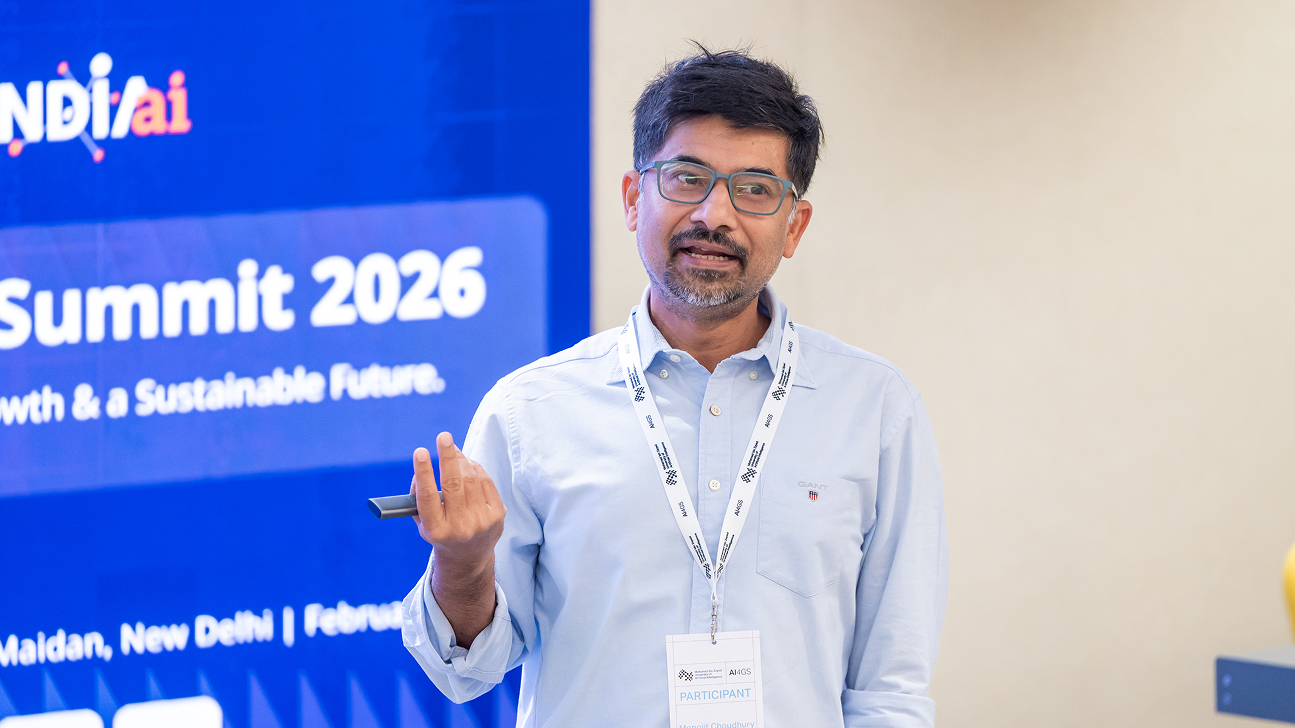Zhang’s work stands the ‘test of time’
Foundational paper from a decade ago recognized
Thursday, July 21, 2022Researchers strive to discover something new in the hope to uncover the next breakthrough in their field and have a lasting effect on future discoveries and advancements. They hope their work will stand the test of time and be accepted by their peers in years to come for its ground-breaking nature. For Dr. Kun Zhang, associate professor of machine learning at MBZUAI, his work from a decade ago has been awarded a Test of Time Award Honorable Mention at this week’s International Conference on Machine Learning (ICML) in Baltimore, USA (July 17-23, 2022).
The paper “On causal and anticausal learning” was accepted by ICML in 2012 and is considered the foundation for causal learning in machine learning.
“It shows the long-lasting impact of his work in causality that a decade later we are still considering this paper foundational,” MBZUAI’s Machine Learning Department chair Le Song, who is a program chair at this year’s event, said. “It is testimony to the calibre of faculty MBZUAI has attracted.”
Co-authored with B Schölkopf, D Janzing, J Peters, E Sgouritsa, K Zhang, J Mooij, Zhang says at the time the paper was considered “a bit controversial in the machine learning community”.
“We were very pleased it was accepted to ICML,” Zhang recalls. “This paper, together with several others, such as “Domain adaptation under target and conditional shift” in ICML 2013 and “On the identifiability of the post-nonlinear causal model” in UAI 2009, provides the foundation of the connection between causality and machine learning. They showed that causality is essential to many machine learning tasks and that causality can be learned with suitable machine learning methods.
“Decades ago, most people believed “causation implies correlation, but correlation does not imply causation” and that in the big data era, only correlation, but not causation, is needed. Our work helped change those views.”
The paper is Zhang’s sixth most cited paper, and was completed when Zhang was a senior research scientist at Max-Planck Institute for Intelligent Systems in Germany. He has since worked as a faculty member at Carnegie Mellon University (CMU) and MBZUAI, and his research has been cited close to 10,000 times.
“This paper indicates that our early efforts to 1) introduce causal principles to machine learning and 2) find causality from a machine learning perspective are partially recognized,” Zhang said. “It also means that there are quite a lot of issues to be made clear in this research area.”
In his role of director at MBZUAI’s Center for Integrative Artificial Intelligence (CIAI), Zhang will continue to explore new frontiers in causal representation learning and causal treatments of AI problems.
“I believe it is now the optimal time to look further into the intersection of causality and machine learning – we are endeavoring to make the causal perspective more operational in machine learning and AI, with the purpose of achieving a higher level of AI, which can automate scientific discovery and is transparent and trustworthy in decision making,” he explains.
Zhang picked up a second award at ICML 2022 for Best Paper Award of the workshop on New Frontiers in Adversarial Machine Learning (AdvML 2022) for “Model Transferability With Responsive Decision Subjects” (co-authored with Yang Liu, Yatong Chen and Zeyu Tang). They gave an oral presentation at the event.
He had three papers accepted at the conference’s 39th event including “Identification of Linear Non-Gaussian Latent Hierarchical Structure”, “Partial disentanglement of domain adaptation”, and “Action-Sufficient State Representation Learning for Control with Structural Constraints”.
Professor Eric Xing, Associate Professor of Machine Learning Martin Takáč, Assistant Professor of Machine Learning Bin Gu, Assistant Professor of Machine Learning Pengtao Xie, researchers and students contributed a further four papers for the university.
About Kun Zhang
Zhang maintains an associate professorship at Carnegie Mellon University (CMU) in the USA to explore machine learning and AI, especially causal learning, and reasoning, at MBZUAI. Zhang formulates principles and develops methods for automated causal discovery or causal representation learning from various kinds of data; investigates learning problems including transfer learning, representation learning, and deep learning from a causal view; and studies the philosophical foundations of causation and various machine learning tasks.
Zhang is a general and program chair of the 1st Conference on Causal Learning and Reasoning (CleaR 2022) and a program chair of the 38th Conference on Uncertainty in Artificial Intelligence (UAI 2022).
Related
AI and the silver screen: how cinema has imagined intelligent machines
Movies have given audiences countless visions of how artificial intelligence might affect our lives. Here are some.....
- cinema ,
- AI ,
- artificial intelligence ,
- art ,
- fiction ,
- science fiction ,
Mind meld: agentic communication through thoughts instead of words
A NeurIPS 2025 study by MBZUAI shows that tapping into agents’ internal structures dramatically improves multi-agent decision-making.
- agents ,
- neurips ,
- machine learning ,
Balancing the future of AI: MBZUAI hosts AI for the Global South workshop
AI4GS brings together diverse voices from across continents to define the challenges that will guide inclusive AI.....
- representation ,
- equitable ,
- global south ,
- AI4GS ,
- event ,
- workshop ,
- languages ,
- inclusion ,
- large language models ,
- llms ,
- accessibility ,


